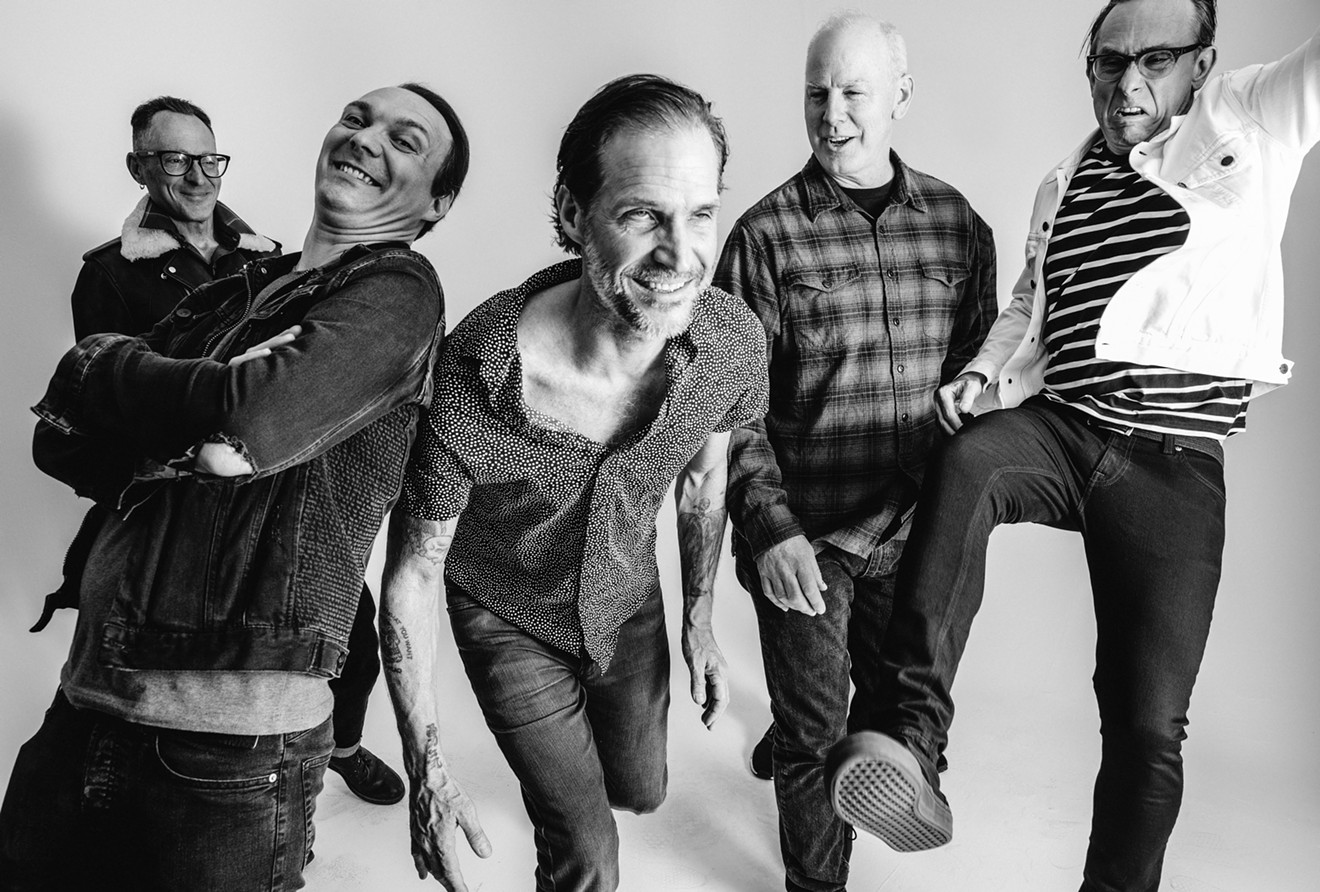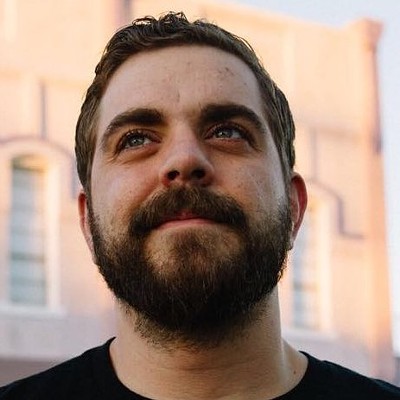During a short break from Bad Religion’s hectic tour schedule, bass player Jay Bentley is using his free time to do some normal dad stuff like making his daughter’s lunch, sending her off to school and drinking “like a hundred cups of coffee, bouncing off the walls and not doing anything.”
Bad Religion will play at House of Blues on Monday, Sept. 30, which will mark the band’s return to Dallas after playing an Easter show at the same venue that saw Bentley wearing bunny ears during the performance.
Like the brevity of their songs, punk bands have a tendency to come and go. They go hard, they go fast and then they break up. Recently, bands like Black Flag and Agent Orange have gotten back together in some form or another to go on what can only be described as nostalgia tours for old fans and to show young fans that there is indeed a real live band behind the iconography.
Not so with Bad Religion, who have consistently recorded and toured for almost 40 years with no sign of stopping, all while singer Greg Graffin has maintained a career as a natural sciences lecturer at University of California, Los Angeles and Cornell, and guitarist Brett Gurewitz has grown the prestigious punk label Epitaph Records along with its sister labels, Anti- and Hellcat.
Bentley attempts to explain the band’s incredible 40-year run by noting that it requires a team effort.
“We are like a well-honed hockey team, and what we know how to do is play Bad Religion songs,” he says. “We don't show up to the ice with tennis rackets. We just do this thing, and we've learned over the years that it doesn't matter if we're trying to learn a Dylan song or do a Christmas cover, at the end of the day, it's going to sound like Bad Religion.”
Now touring in support of their 17th studio album, Age of Unreason, an album that responds to modern problems like conspiracy theories, racist rallies, Trump’s election, the erosion of the middle class, so-called “alternative facts” and more, Bentley remarks that the inspiration for new material comes from a relatively simple source.
“It is the anger that comes from outside sources,” he says. “In the conversations that we've had over the years about where the ideas for the songs come. Brett would say, ‘I just wake up in the morning and open the newspaper.’”
While Bentley may not bring the same songwriting skills to the band that Graffin and Gurewitz do, playing with the band has been a major part of his life and his education beyond the notes and instruments."I've been in the band since I was 15 years old. ... I can tell you, traveling down the road in the station wagon, we were having discussions that enlightened me and educated me in ways that I never got in school." — Jay Bentley
tweet this
“It's a cathartic release for me,” Bentley says. “It's my therapy. It's been my education. I've been in the band since I was 15 years old. I dropped out of high school. I can tell you, traveling down the road in the station wagon, we were having discussions that enlightened me and educated me in ways that I never got in school. A lot of stuff that I love about this band has nothing to do with the music and has everything to do with the guys in the van and the way that we wrote it together and educated ourselves.”
For those of us who grew up on Bad Religion, Bentley’s story is quite relatable. While the education that high school offered was enough for some to just get through, there were others whose feelings of alienation led them to Graffin’s melodic voice and searing sociopolitical commentary.
“I know that when we're sitting down and creating, we're not thinking of the impact that this will have or how people are going to react to it,” Bentley says. “But as an artist, you're always super grateful that anyone has ever taken the time to acknowledge your art and gotten something out of it.”
On the current presidency, Bentley simply offers, “No. I can't say anything that anybody hasn't already said. My feeling is if people are as unhappy as they appear to be, vote.
“I just see compassion as sort of a benchmark. If it's the watermark of how I judge someone, and if you have the ability to be completely incompassionate to someone who isn't of your tribe, then I can't relate to you. That's where I draw the line.”












